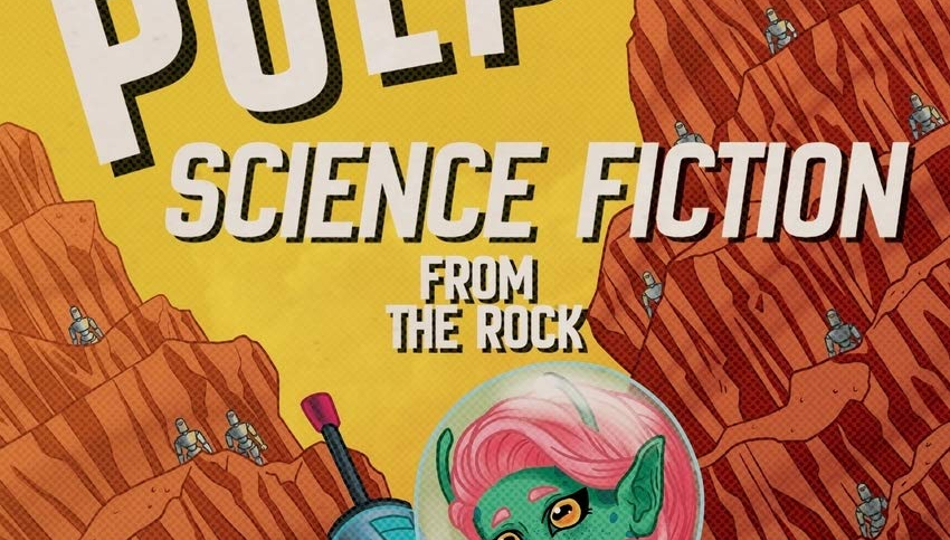Hah! This entry has some personal significance for me, at least tangentially.
In 1979 I was an English Literature student at Fairleigh Dickinson U (“Fairly Ridiculous”). The school was in transition from a liberal arts college to a business college. As a result, the number of offerings in the English core curriculum was being steadily reduced to “English 101” (so that SBA students could communicate somewhat coherently in their native language).
As most college-experienced people know, you need to take X number of classes in your “core” in order to qualify for graduation.
Having already taken the vast majority of remaining offerings by my third semester, this presented a quandary: the school couldn’t prevent us from qualifying just because they couldn’t offer appropriate courses.
The decision was made to allow qualifying Sophomores to take graduate level classes and receive credit for them. My friends and I (they were in a similar boat, I think the three of us made up 90% of the English Lit undergraduates at the time).
We opted to take a class on H.L. Menken, taught by a professor who had to have been contemporary with him, who had a lousy reputation as a teacher – which she made clear on the very first day of class, when she ostentatiously explained to the other students our presence among them by writing the definition for “Sophomore” on the class whiteboard – “SOPHOMORE – Wise Fool”, and double underlining “fool”.
Understand that at this point in time I also maintained a 4.0 in my core.
Comes time for our thesis paper, last step of getting a grade for the class. She routinely rejected our proposed subjects until, remembering an interview I had done with Edward L. Ferman (son of this Encyclopedia entry) when he edited F&SF, I offered to interview one of the people who edited the American Mercury magazine along with Mencken (although the name escapes me at this time, he was mentioned by Ferman during our interview).
My proposal to interview him was accepted, although I was assured that I would get a failing grade because it was entirely impossible that I would be able to interview this person.
But I did, and I wrote it up with cogent questions about the magazine, its history, impact on literature, praising Mencken throughout (because our professor was apparently in love with him) and turned it in.
First I was accused of making it all up. When it was proved (with audio recordings that I had actually interviewed someone) it was accepted and I got a “C-” grade, destroying my cum.
I complained to the Dean of Students. He asked me to first talk to the professor, which I did. It was nothing but an exercise in being insulted, demeaned, belittled – all because the professor resented having to teach “wise fools”.
I went back to the Dean of Students, who agreed with me, off the record, that the professor was a problem, unfair, biased and etc., and he agreed to remove the class score from my cum (of course, I had to make it up with additional course work), allowing me to preserve my 4.0.
This personal incident brought to you, at least partially, by the son of the man who is the subject of today’s Random Entry: Joseph W. Ferman, without whose involvement there might not have been a The Magazine of Fantasy and Science Fiction.
Mr. Ferman had a long career with the American Mercury Magazine (the magazine that made H.L. Mencken a household name), Ferman became the general manager of Mercury Publications, which would go on to publish The Magazine of Fantasy and Science Fiction, Ellery Queen’s Mystery Magazine, Venture Science Fiction and more.
I like to think that the antagonist of our earlier story found ways to additionally resent me owing to the Mencken – genre connection I unfortunately reminded her of. Yes, she had the usual attitude of the literary hoi polloi towards genre fiction, as evidenced by regular clashes with the department head – my advisor – over his inclusion of a class centered on science fiction.
Let this be a lesson to the hoi polloi: there’s more than one way to skin a cat, which you’d know if you took your noses out of your “lit er a chure”.
(Really wish I could remember the name of the guy I interviewed. Really glad I can’t remember the name of that professor as well.) (Oh. It was probably Charles Angoff.)
Steve Davidson is the publisher of Amazing Stories.
Steve has been a passionate fan of science fiction since the mid-60s, before he even knew what it was called.










Recent Comments